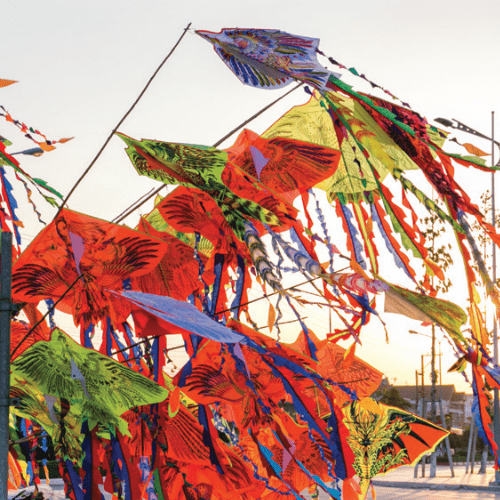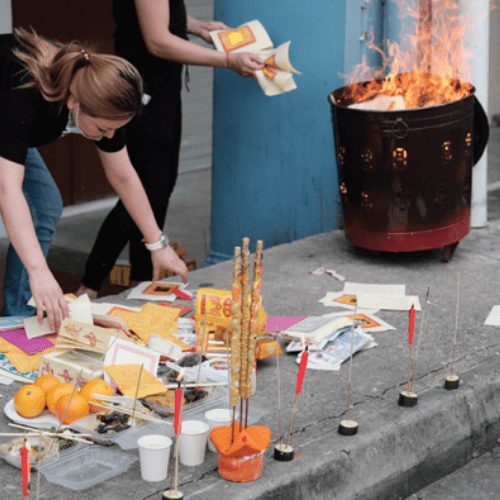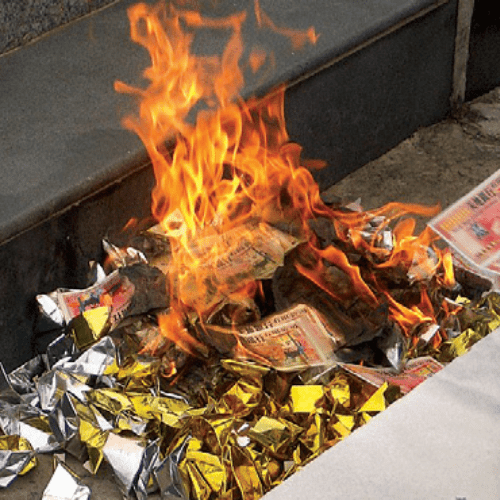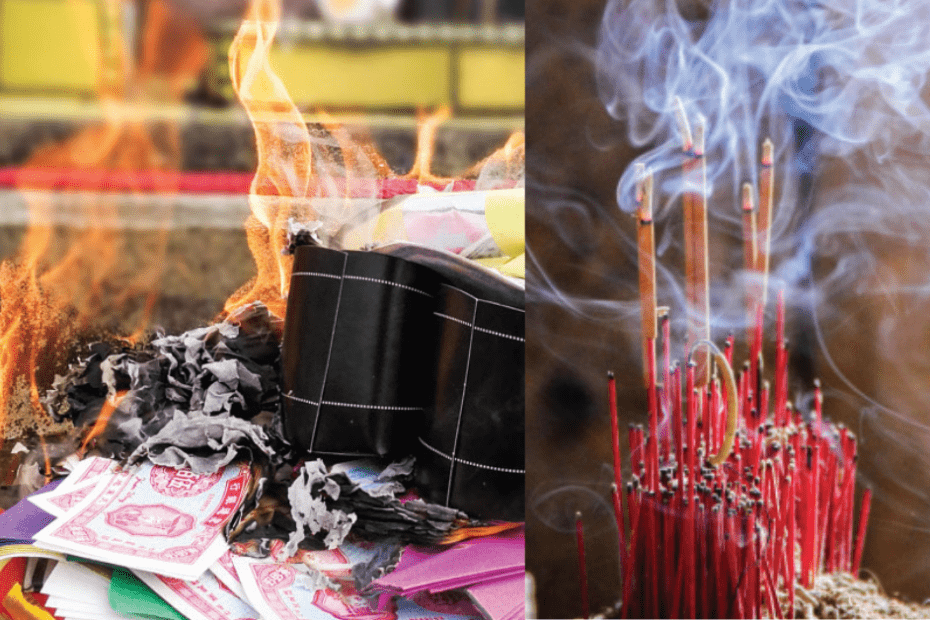One of the most important festivals in Chinese culture takes place in April. Here’s a look at the myth, folklore and activities surrounding it
Photos Courtesy of Pexels
Ching Ming Festival – also known as Grave Sweeping Day and Clear Bright Festival – is the day, and often the only day in the year, when Chinese families visit the graves and tombs of their ancestors. It falls on the fourth or fifth day of the third lunar month (April 5, 2022), and has been a public holiday since the Tang dynasty.
In fact, to understand the origins of Ching Ming Festival, you need to look back around 2,500 years to the Zhou dynasty, when emperors and noblemen performed rituals throughout the year to venerate their dead, hoping for prosperity, peace and abundant harvest in return. At this time, ancestor veneration was the preserve of the ruling elite because it was so costly. However, things changed in the Tang dynasty when Emperor Xuanzong (713 to 756 CE) decided to limit these lavish rituals to a single day, establishing the Ching Ming Festival tradition.
Emperor Xuanzong also made Ching Ming Festival a national holiday and decreed that all subjects commemorate it in a simple way by visiting and cleaning the tombs of their ancestors. And the tradition continues.
These days at Ching Ming Festival, when visiting graves, families tidy the headstones, clear away grass and weeds, light incense and make burnt offerings. Items burned include (fake) money and these days, paper replicas of laptops, mobile phones, air-conditioners, refrigerators and even luxury cars and designer clothing – anything that the ancestor may find useful in the afterlife.
Food offerings are also made at the gravesides and these too involve various time-honoured rituals. Typically, three bowls, filled with pastries, chicken and pork, are placed at a headstone along with three wine glasses and three sets of chopsticks. The head of the family then takes a glass of wine and blows on it three times before pouring the wine on the grave. The same procedure is repeated by each member of the family three times. Following this, the family shares the food in honour of the deceased.
Ching Ming Festival is first and foremost a day to honour ancestors but it’s also a time for families to get together to eat and also traditionally, to fly kites. Again, there’s plenty of superstition and symbolism regarding this activity. Instead of pulling back the kite after it has flown high, it’s important to cut the string and release it – by releasing a kite, you let go of any bad luck, disease or negative energy you have accumulated over the past year.

A TIME TO FLY KITES

MAKE FOOD OFFERINGS

BURN FAKE MONEY!
HILL FIRE PREVENTION
Look back just 20 years or so and the hill fires caused by the grave cleaning associated with Ching Ming Festival were a serious environmental problem. Thankfully now, due to growing environmental awareness and strict government controls the situation has eased.
Every year, the Agriculture, Fisheries and Conservation Department (AFCD) reminds all those paying tribute to ancestors at graveyards in the countryside to exercise caution and prevent hill fires. Environmentalists across Hong Kong, including Jenny Quinton of Ark Eden in Mui Wo, have also campaigned tirelessly to encourage grave sweepers to take due care when lighting candles and making burnt offerings.
“Awareness is growing, so we are seeing fewer fires,” Jenny says. “But still people go up with candles and incense and they leave them burning, with potentially catastrophic results. It’s very easy to start a fire.”
In order to help prevent accidents, the AFCD has issued a series of guidelines for grave sweepers to follow: ‘Remove weeds around the graves with tools and never burn weeds. Burning should only be done inside a container or iron bucket. Never leave burning offerings unattended. Make sure all kindling is put out before leaving.’
These days during Ching Ming Festival, metal containers, in which to burn offerings, are handed out to grave sweepers in the country parks. The AFCD also employs additional country park wardens to step up patrols at hill-fire blackspots. It is now an offence under the Forests and Countryside Ordinance to leave kindling in the countryside or burn offerings without considering fire risks. Offenders are liable to a maximum fine of HK$25,000 and one year’s imprisonment.
“Hill fires are far less frequent,” Jenny concludes. “Many more systems have been put in place, including fire-beater racks and fire breaks on the hillsides; the situation is so different now to what it was 20 years ago. If we didn’t have the government authorities helping, none of this would have happened.”
